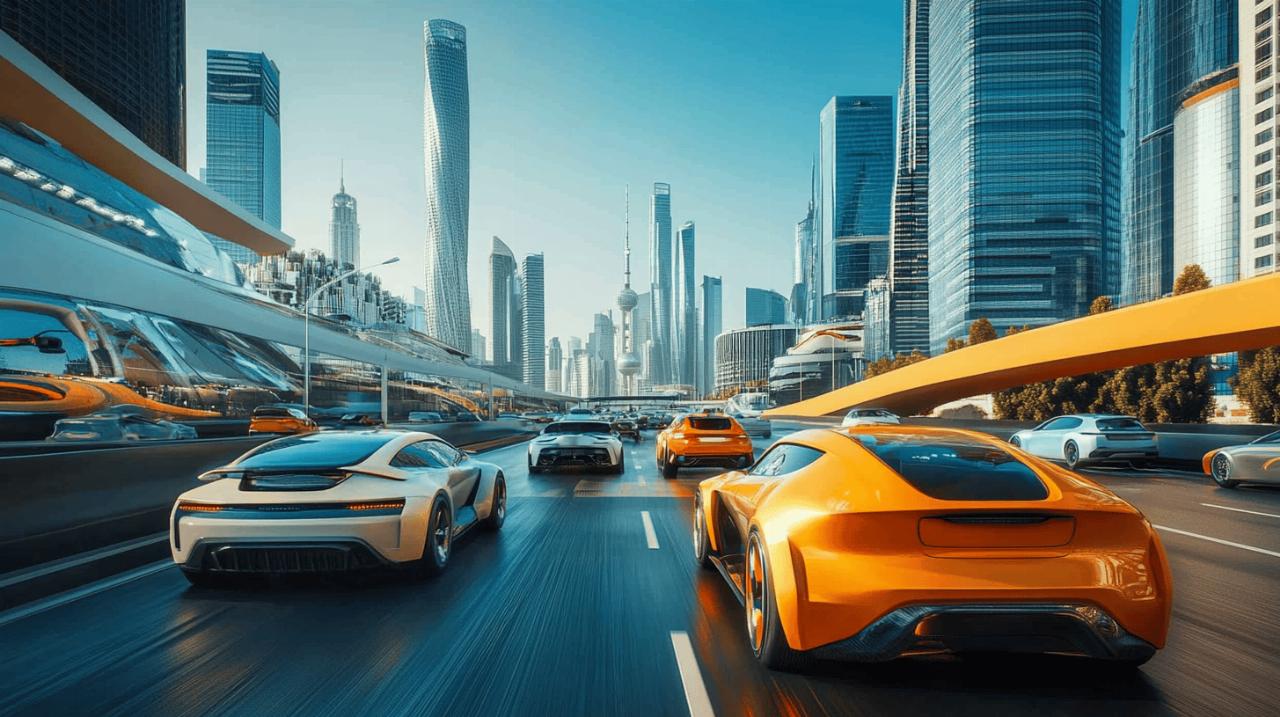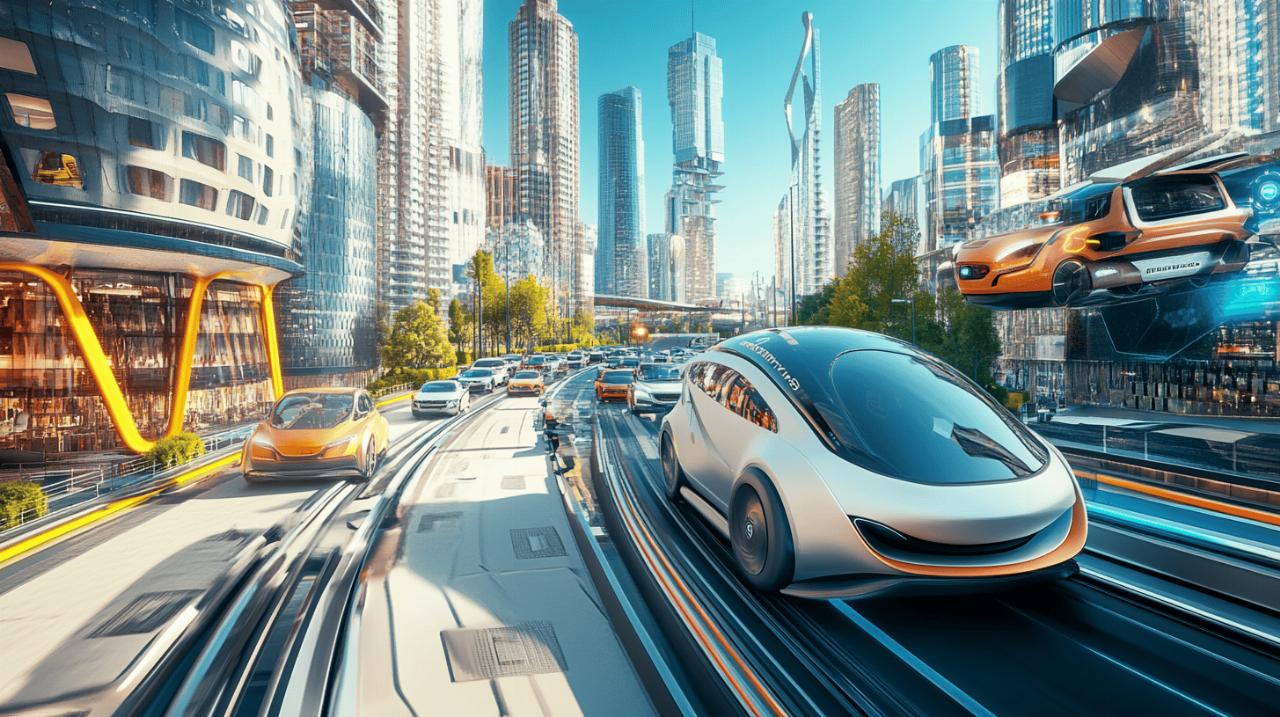The evolution of motor vehicles
The concept of auto-mobil has revolutionised our world in ways that extend far beyond mere transportation. Dating back to the late 1600s when Dutch scientist Christiaan Huygens invented a type of internal combustion engine, the journey of motor vehicles has been one of remarkable innovation and societal transformation. Today's passenger cars, defined as vehicles with no more than eight passenger seats plus the driver's seat and a maximum weight of 3.5 tonnes, represent the culmination of centuries of engineering advancement. They have become an integral part of modern life, with Europeans travelling an average of 12,000 kilometres annually by car, accounting for over 82% of inland journeys.
From early designs to contemporary models
The evolution of automobiles has been dramatic and swift. Early vehicles experimented with various power sources including steam, electricity, and petrol. By 1920, petrol-powered cars had become dominant, largely due to their efficiency and reliability. A striking illustration of this rapid development can be seen in American manufacturing statistics: in 1935, the United States produced nearly 3,971,000 cars—almost 90 times more than the 45,000 manufactured in 1907. The car industry has continued to grow, becoming a cornerstone of the global economy. In Europe alone, 98 car assembly plants produce approximately 12.2 million passenger cars annually, representing 20% of worldwide car production. The European car market now features 249 million passenger cars with an average age of 12.5 years.
Contemporary models reflect significant technological advancements, particularly regarding environmental concerns. The automotive statistics show new car emissions averaging 107.8g CO2/km in 2023, representing a 14.7% decrease since 2013. Electric vehicles are gaining momentum, with battery and plug-in hybrid cars now constituting 20.8% of new car sales in Europe, though they represent only 3.9% of all cars currently on the road. As highlighted by auto-mobilpartnerschaft, environmental considerations are increasingly shaping the industry, with new environmental zones being implemented in German cities from 2025 to create low-emission inner cities.
Impact on infrastructure development
The proliferation of motor vehicles has necessitated massive infrastructure development. Road networks have expanded dramatically, reshaping landscapes and urban planning principles. This expansion has facilitated access to previously remote areas, encouraging suburban growth and commuter culture. The impact on urban design has been profound, with many cities developing around car accessibility rather than pedestrian convenience. Regulations requiring businesses to provide substantial parking spaces have further entrenched car dependency in many regions.
Infrastructure development has also responded to emerging automotive technologies. As electric vehicles become more common, charging networks are expanding throughout Europe. Similarly, as vehicle automation technology advances, road systems are being adapted to accommodate these new capabilities. The auto-mobil industry continues to drive infrastructure evolution, creating a symbiotic relationship between vehicle technology and the built environment that supports it.
Personal mobility revolution
 The automobile has fundamentally altered how people experience mobility and freedom. Cars have transcended their utilitarian purpose to become powerful symbols of independence and personal expression. This revolution in personal transportation has reshaped social patterns, economic structures, and cultural values across societies. The ability to travel independently, without reliance on fixed schedules or routes, has expanded individual horizons and possibilities in unprecedented ways.
The automobile has fundamentally altered how people experience mobility and freedom. Cars have transcended their utilitarian purpose to become powerful symbols of independence and personal expression. This revolution in personal transportation has reshaped social patterns, economic structures, and cultural values across societies. The ability to travel independently, without reliance on fixed schedules or routes, has expanded individual horizons and possibilities in unprecedented ways.
Freedom and Accessibility in Daily Life
Motor vehicles provide a level of convenience and independence unmatched by other transportation forms. Unlike public transit systems with fixed routes and schedules, cars offer the flexibility to travel whenever and wherever desired. This freedom proves especially crucial in rural areas where public transportation options are limited or nonexistent. The car culture that has emerged reflects this value placed on personal mobility, with vehicles often representing more than mere transportation—they embody freedom, status, and identity.
Beyond convenience, cars provide accessibility to opportunities that might otherwise remain out of reach. They enable workers to access employment beyond their immediate vicinity, expanding career possibilities. Families gain easier access to educational institutions, healthcare facilities, and social connections. As detailed in articles from auto-mobilpartnerschaft, cars facilitate adventure and exploration, such as navigating the challenging terrain of Iceland with suitable off-road vehicles or SUVs. This accessibility extends to leisure activities, enhancing quality of life through greater engagement with diverse experiences.
Social and Economic Benefits of Individual Transport
The economic impact of the automotive industry extends far beyond manufacturing. In the European Union, member states receive approximately €380 billion annually from taxes on passenger car sales and use. The industry creates millions of jobs—in 2009, the automobile industry in the United States employed 880,000 workers, representing about 6.5% of all manufacturing employees. Furthermore, European car exports totalled over 4.5 million vehicles in 2024, valued at nearly €155 billion, highlighting the global economic significance of the sector.
Car ownership does entail significant costs for individuals. In 2013, the average annual cost of car ownership in the United States was $3,201, with the Internal Revenue Service estimating per-mile costs at $0.55. The Canadian Automobile Association reported even higher figures, with compact car ownership costing approximately CA $9,500 (US $7,300) annually in Canada. Despite these expenses, the benefits of individual transport—including time savings, convenience, and expanded opportunities—continue to make car ownership worthwhile for millions of people worldwide. The automotive industry also continues to evolve, with manufacturers developing more efficient, safer, and environmentally friendly vehicles to address contemporary challenges while preserving the fundamental benefits of personal mobility.
